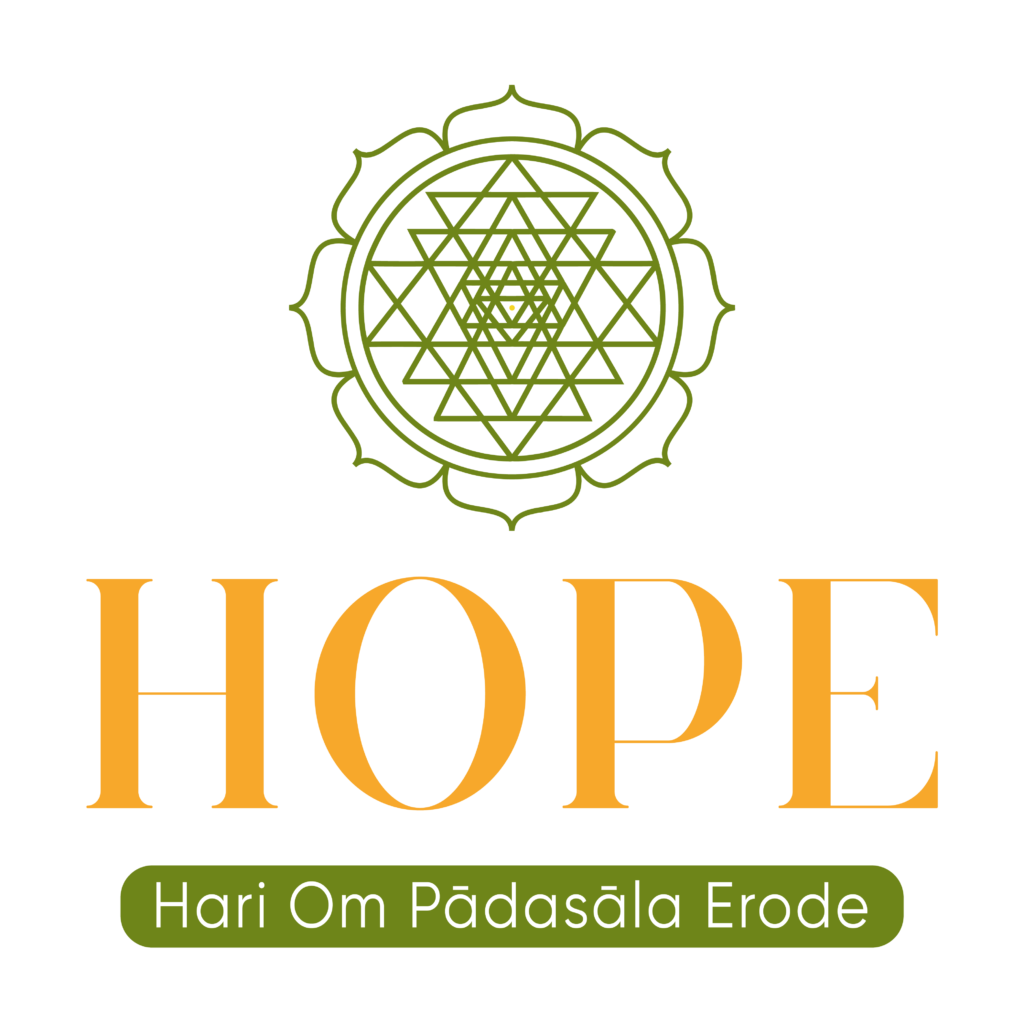Early Years
About Montessori
Montessori is an educational philosophy developed by Dr. Maria Montessori that emphasizes self-directed learning, hands-on activities, and collaborative play. It encourages children to learn at their own pace in a carefully prepared environment that promotes independence, creativity, and critical thinking.
The Montessori approach fosters a lifelong love of learning by encouraging curiosity, independence, and the development of real-world skills.
Kreedo Syllabus
Key Components of Kreedo Syllabus
- Practical Life
- Mathematics
- Cultural Studies
- Physical Development
- Sensorial
- Language
- Creative Arts
- Structured Progression
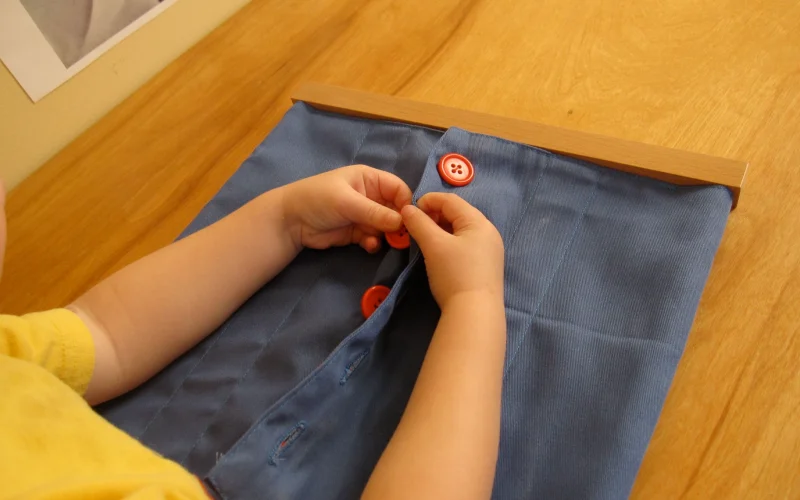
Practical Life
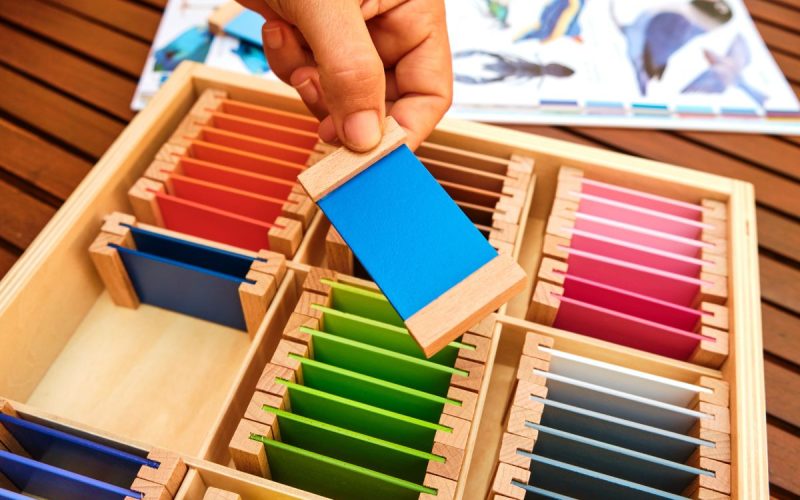
Sensorial
Engages the five senses through activities that help children classify, compare, and understand sensory input, refining their observation skills.
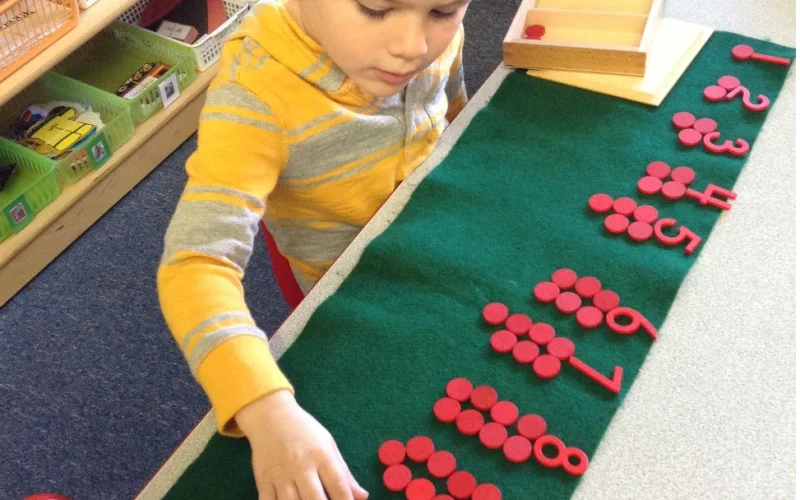
Mathematics
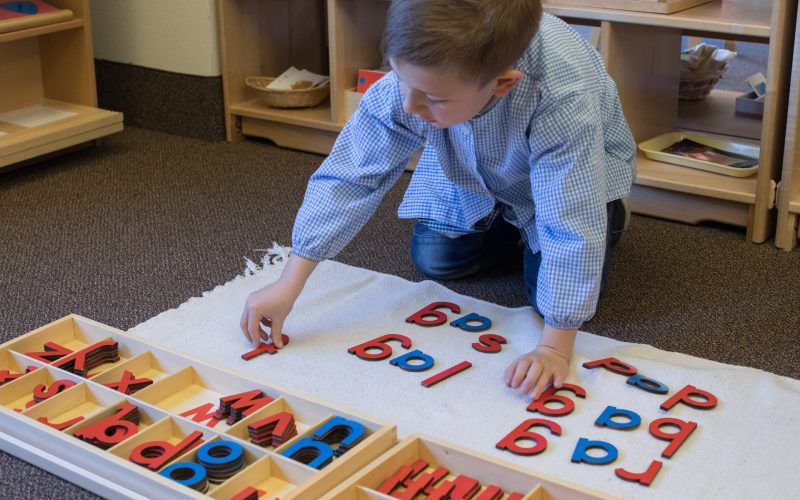
Language
Encourages phonetic awareness, vocabulary building, and early reading and writing through materials like sandpaper letters, movable alphabets, and picture cards.
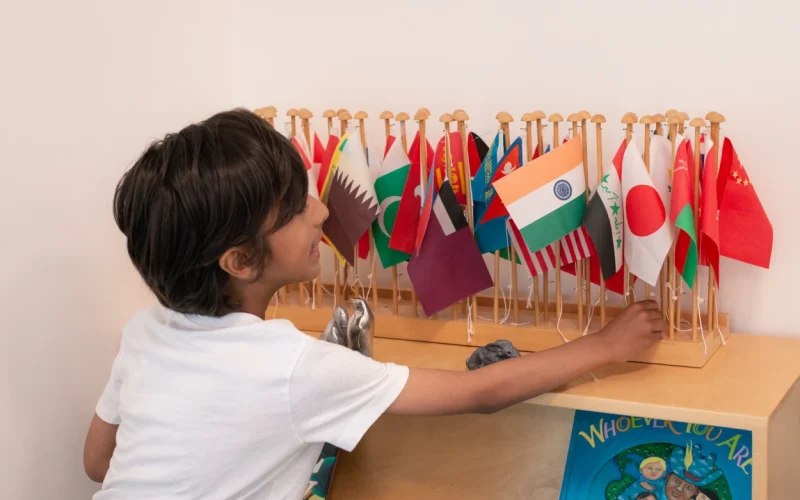
Cultural Studies
Includes geography, history, and science activities that help children learn about the world, different cultures, and the environment, fostering global awareness and respect for diversity.
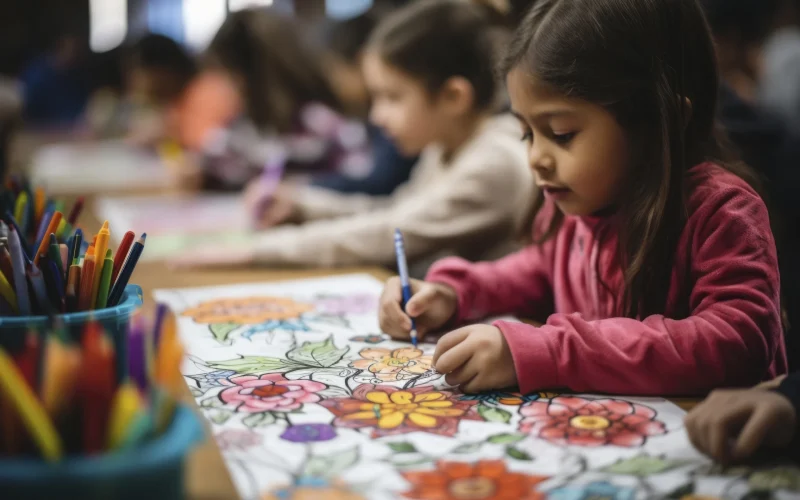
Creative Arts
Encourages artistic expression and creativity through drawing, painting, and craft activities, developing fine motor skills and imagination.

Physical Development
Promotes physical activity and coordination through kinesthetic learning, outdoor play, and exercises that build strength and balance.
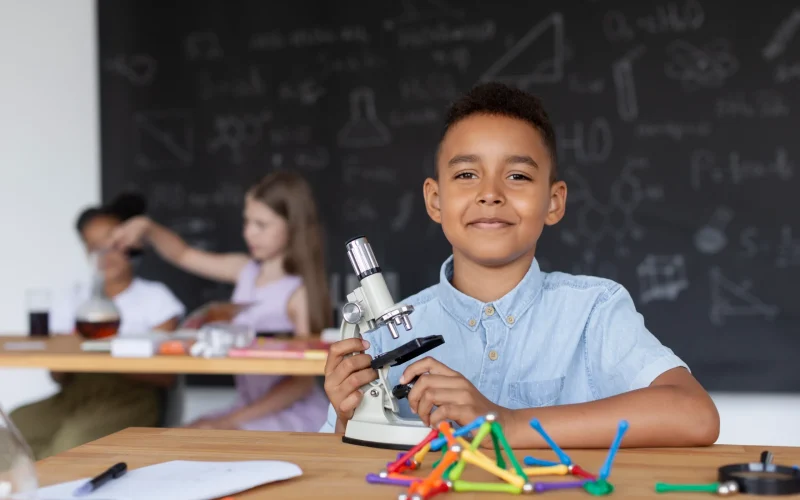
Structured Progression
Materials increase in complexity, allowing children to advance at their own pace for personalized learning.
Kreedo Approach
- Child-Centered Learning
- Holistic Growth
- Hands-On Materials
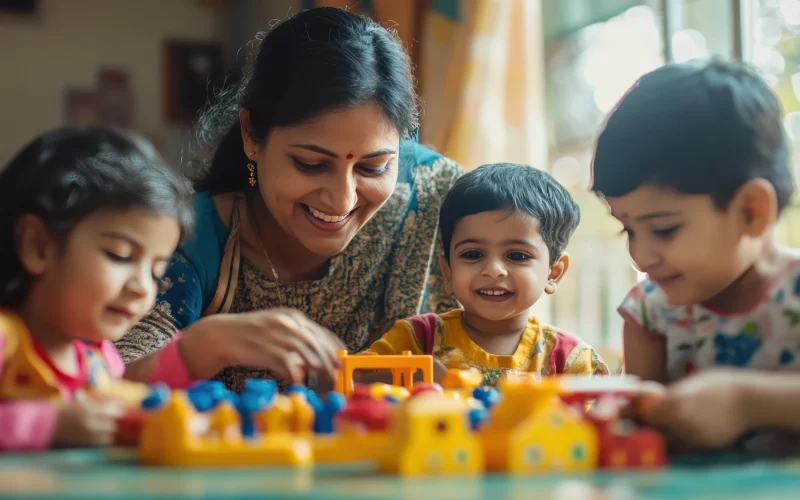
Child-Centered Learning
Children choose activities based on their interests, allowing them to learn at their own pace and develop independence.
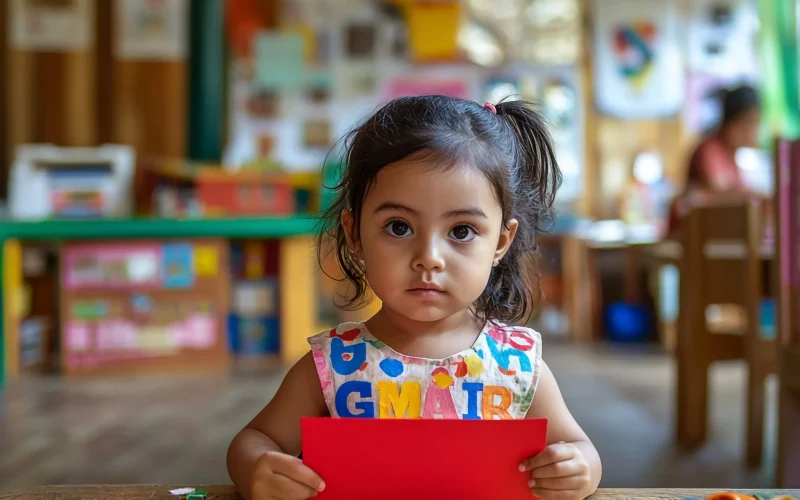
Holistic Growth
The syllabus focuses on intellectual, emotional, social, and physical development, ensuring a well-rounded learning experience.

Hands-On Materials
The curriculum is built around interactive materials that make learning concrete and engaging.
